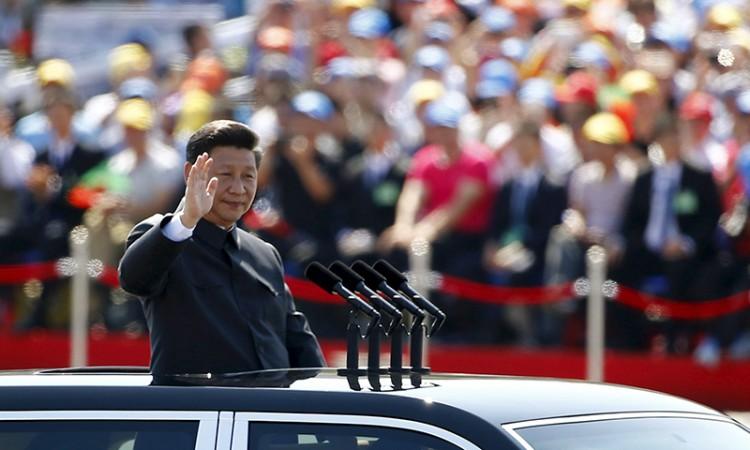China's President Xi Jinping was exalted to the same status as the country's founder Mao Zedong on Tuesday at the culmination of the 19th Congress of the Chinese Community Party (CCP), as the party enshrined the "Xi Jinping Thought" in its constitution.
The ceremony in Beijing's Great Hall of the People made Xi the most powerful leader of the country which boasts of the world's second biggest economy and is rapidly extending its influence across the globe.
With his elevated status, Xi will now attempt to fill the vacuum of a leadership in the world, brought about by the segregating policies of the United States President Donald Trump's administration with its 'America first' vision and the increasing dysfunction in Europe.

"A new era needs a new look, and even more needs new accomplishments," 64-year-old Xi said during the ceremony on Tuesday as he and the six newly appointed leaders of the Standing Committee lined up before the cameras.
Xi has been hailed for his signature Belt and Road Initiative, which is meant to repave the ancient Silk Road through a trade and infrastructure network across Eurasia and Africa. The Chinese leader has also significantly ramped up the construction and militarisation of the islands in the South China Sea, openly challenging United States and its allies – indicating that China does not intend to bow down under pressure.
Xi's re-election has given him a sense of stability of his continuing leadership in China, which most of the leaders across the world lack, as America's Trump, Germany's Angela Merkel and the UK's Theresa May all face opposition at home.
The Chinese leader now stands at the helm of one of the world's strong militaries without any obvious challenger.

Xi's one-man style of rule and his promise of bringing "China closer to centre stage" has garnered him immense popularity in the Communist Party. Xi's dominion in the party was reflected during the week-long congress as no potential successor was announced. The lack of a successor could be possibly seen as Xi's intention to dominate beyond the next five-year term, which ends in 2023, by continuing to stay in office.
Although China's national Constitution says that he cannot serve more than two terms as president, Xi however could remain in other powerful posts, possibly as the party leader or the chairman of the armed forces.
"It's the coronation of Emperor Xi," Professor Nick Bisley, an Asia expert at Australia's La Trobe University told TIME magazine. "He is without question the paramount leader and one with a remarkably ambitious vision for China."
Xi's rise to popularity in the country and his five-year term has been marked by a significant assertiveness and expansion of Chinese interests overseas, a crackdown on corruption through his anti-graft campaign, coping with a slowing economy and ending the infamed one-child policy.
With world leaders congratulating Xi over his "extraordinary elevation," the Chinese leader is now expected to place more emphasis on overhauling the economy, with an intention to place China at the centre of the world power map.
















